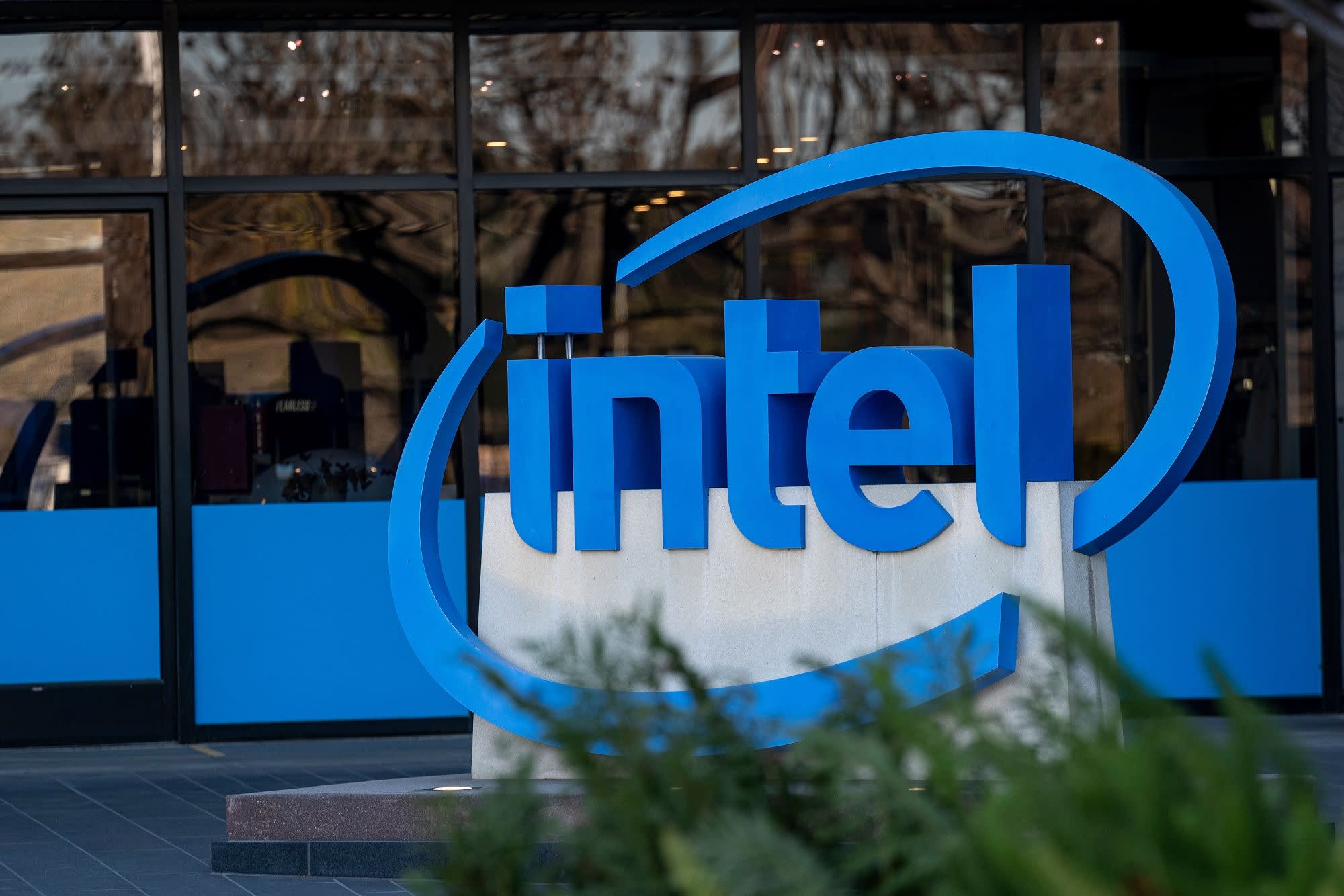Years of manufacturing issues for Intel (NASDAQ:INTC) has led to a situation that would have been unthinkable five years ago: The manufacturing edge the chip giant long enjoyed is gone. Taiwan Semiconductor Manufacturing (NYSE:TSM), which counts Intel rival Advanced Micro Devices (NASDAQ:AMD) as a customer, has pulled into what looks like an insurmountable lead.
While Intel is still churning out PC chips built on its now ancient 14nm process, TSMC has been offering its customers 7nm chips for quite some time. Intel won't have 7nm chips of its own until 2023, assuming nothing gets derailed before then.
Intel will spend big in the coming years on manufacturing as it looks to close the gap and launch its own foundry services business. The company is pouring $20 billion into two new facilities in Arizona, and its annual capital spending is right around that $20 billion mark.
But TSMC is spending even bigger. The company plans to spend a whopping $100 billion over the next three years to expand capacity. By the time Intel finally launches its first 7nm chip, TSMC plans to be already mass-producing chips built on a 3nm process. Comparing processes between companies isn't exactly apples-to-apples, but you get the idea.
A comeback for Intel looks downright impossible given TSMC's lead. It will require a lot of things to go right for Intel, and some things to go wrong for its competitors. It's exactly the kind of situation AMD found itself in a few years ago.
Image source: Getty Images.
AMD's comeback looked impossible, too
Let's rewind to 2015. AMD was in awful shape. Revenue plunged 28% that year to just $4 billion, and the company reported a staggering net loss of $660 million . To say that AMD's products weren't competitive with Intel's would be an understatement.
AMD's share of the server chip market had fallen close to zero just as demand from cloud computing providers was starting to heat up. By 2017, AMD was shipping less than 10% of PC chips. The company's Bulldozer architecture, launched in 2011 and revised a few times, was a disaster. Reviewers at Anandtech found one of AMD's early Bulldozer PC chips was outperformed by a comparable Intel chip by as much as 50%.
A comeback for AMD looked like the longest of longshots. Not only did Intel have a manufacturing lead at the time, but it was also designing better chips than AMD.
Today, AMD has come roaring back. The company's Zen architecture is the foundation of its Ryzen PC and EPYC server chips, with the latest iteration of each built on TSMC's 7nm process. AMD has grown its market share considerably, and it grew revenue to nearly $10 billion in 2020. In many cases, AMD's chips are outperforming Intel's chips, and they're using considerably less power thanks to the advanced manufacturing process.
AMD's comeback required a few things to happen. AMD needed to design a better architecture; third-party foundries like TSMC needed to continually launch improved manufacturing processes without issue; and Intel needed to make serious missteps. It all happened, as unlikely as it seemed back in 2015.
Intel can make a comeback; it just won't be easy
Given what AMD has managed, it would be unwise to completely write off Intel. Yes, the company has made a lot of mistakes over the years. Yes, it will take more than Intel getting its manufacturing operation back on track for the company to regain its manufacturing edge. TSMC will probably need to have some missteps of its own.
I can't put odds on Intel's comeback, but I know that it's never a good idea to simply assume whatever is happening now will continue to happen forever. I was dead wrong about AMD's turnaround for exactly that reason. Shares of AMD have gained more than 2,000% over the past five years, by the way.
Intel stock hasn't suffered all that much, so don't expect those kinds of gains if the company can turn itself around. But with Intel trading for just about 12 times the company's adjusted earnings guidance, there's plenty of room to run if things start to go right for the chip giant.
This article represents the opinion of the writer, who may disagree with the “official” recommendation position of a Motley Fool premium advisory service. We’re motley! Questioning an investing thesis -- even one of our own -- helps us all think critically about investing and make decisions that help us become smarter, happier, and richer.
The Link LonkMay 05, 2021 at 06:25PM
https://ift.tt/2RpbkKr
Intel's Comeback Looks Impossible. So Did AMD's. - Motley Fool
https://ift.tt/2ZDueh5
AMD

No comments:
Post a Comment